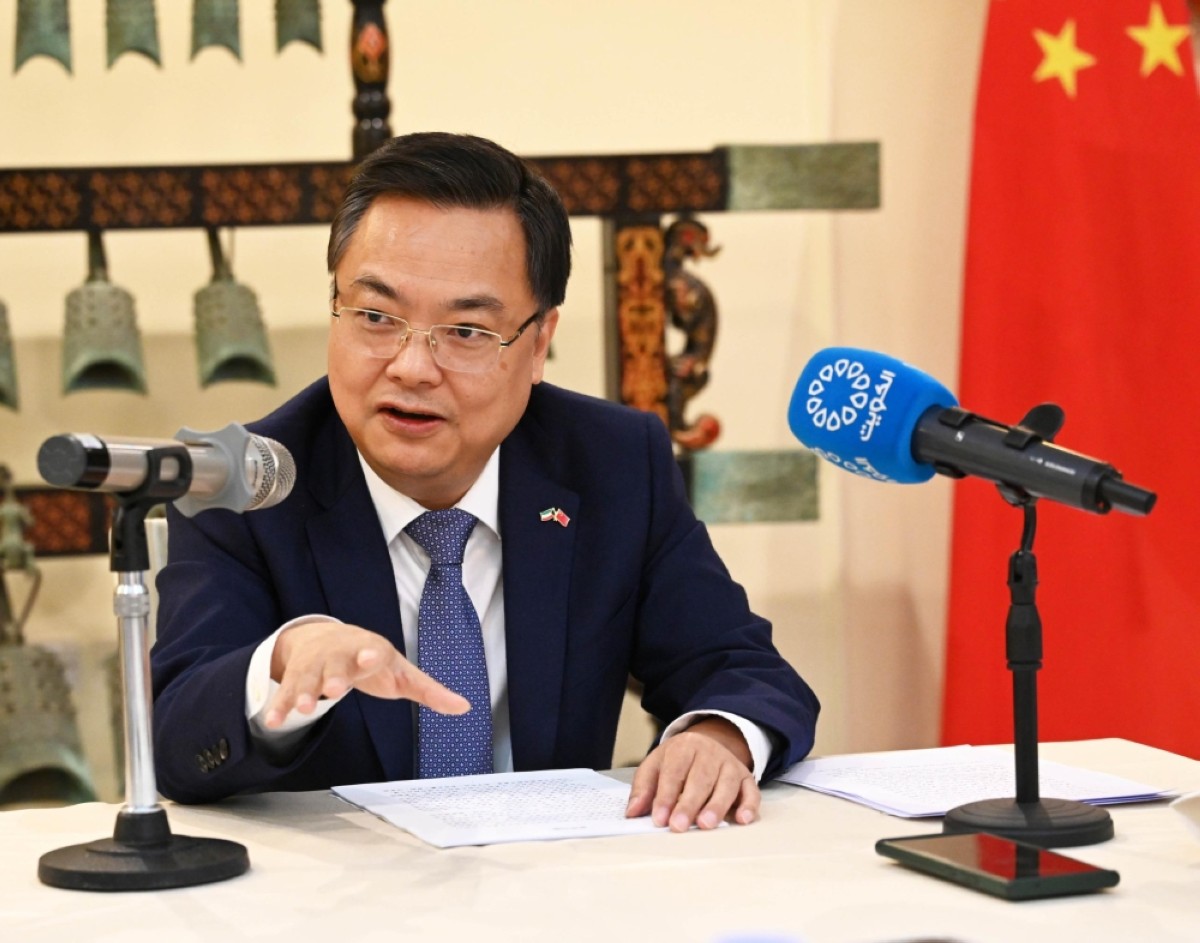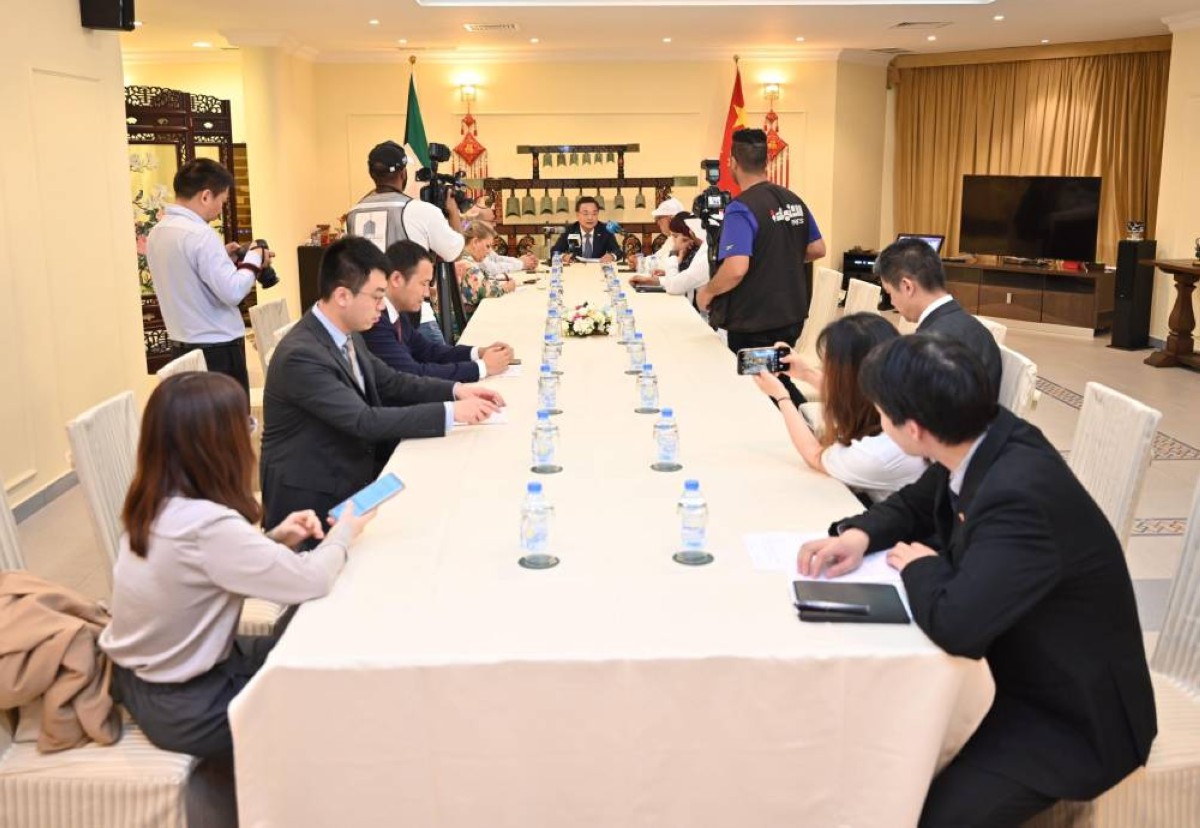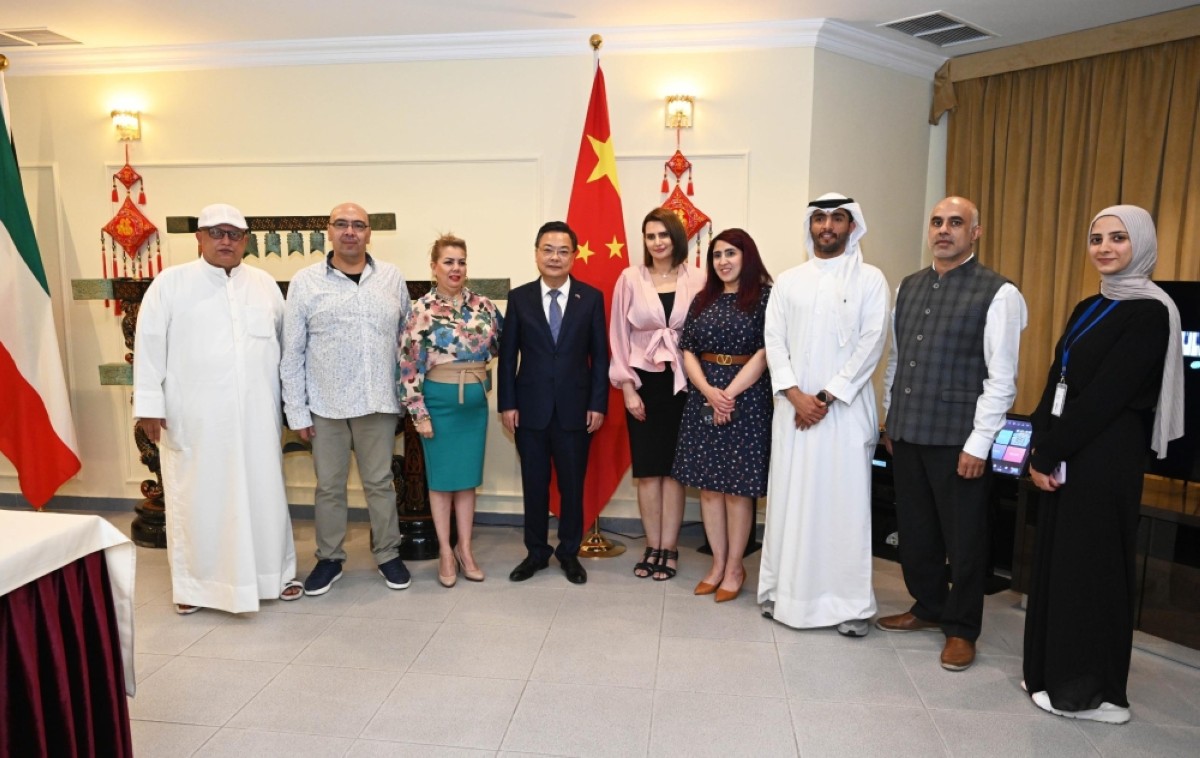KUWAIT: Chinese Ambassador to Kuwait, Zhang Jianwei, underscored the robust and growing bilateral ties between China and Kuwait, encompassing a wide range of mutual interests and major concerns in humanitarian, political, economic, and cultural domains. During a recent press conference, the Ambassador emphasized the reciprocal support between the two countries on both local and global levels.
He particularly noted a significant meeting between President Xi Jinping and His Highness the Amir Sheikh Mishal Al-Ahmad Al-Jaber Al-Sabah, which took place last September in Hangzhou, China. The meeting underscored China’s support for Kuwait’s sovereignty and its commitment to non-interference in internal affairs, a principle Zhang referred to as the "golden rule” for developing countries.
In addition, the meeting showed Kuwait’s unwavering support to the one-China policy, noting, "China highly values Kuwait’s consistent and just position on upholding the one-China principle.” This principle, as Zhang has stated, has been embraced by 183 countries worldwide.
Zhang highlighted the shared values between China and Kuwait regarding the future and destiny of humanity. "Both China and Kuwait advocate for global multilateralism, and economic inclusiveness, calling for all countries to work together to respond to global challenges and achieve shared prosperity,” Zhang remarked. He referenced President Xi Jinping’s vision of constructing a community with a shared future for humankind, which resonates with Kuwait’s leadership.




"HH the Amir Sheikh Mishal has endorsed China’s Global Development Initiative, Global Security Initiative, and Global Civilization Initiative,” Zhang highlighted, positioning Kuwait as a pivotal partner in these global endeavors. China and Kuwait continue to reinforce their political relationship through mutual respect and shared goals, adhering to the principles of the United Nations Charter.
Zhang added that both countries advocate for an international order based on international law and multilateralism, emphasizing solidarity, cooperation, equity, and justice in international relations. They are committed to protecting the interests of developing nations. Notably, he mentioned how both nations steadfastly support the just cause of the Palestinian people, seeking a comprehensive, just, and lasting solution based on the "two-state solution.”
60 Chinese companies
On the economic front, Zhang stated that China and Kuwait enjoy complementary advantages, achieving mutual benefits and shared gains. Since 2015, China has consistently maintained its position as Kuwait’s largest trading partner. In 2023, bilateral trade between China and Kuwait reached a total of $22.39 billion. Kuwait is also the ninth-largest source of crude oil imports for China, with China importing 24.53 million tons of crude oil from Kuwait.
Chinese oil companies have signed long-term agreements to purchase crude oil from Kuwait Petroleum Corporation. Currently, around 60 Chinese companies operate in Kuwait, participating in over 80 engineering contracting projects. These Chinese companies bring strong capabilities, advanced technology, and rich experience in infrastructure construction, with many successful models in the region. He stressed China’s encouragement for inviting more capable and reputable Chinese companies to engage in Kuwait’s construction and development.
Culturally, as Zhang pointed out, both nations advocate for dialogue and exchanges between civilizations, protecting the diversity of world civilizations, rejecting discrimination and prejudice against specific civilizations, and opposing the "clash of civilizations” theory. In recent years, cultural exchanges between the two countries have increased. For instance, Zhang referred to a Kuwaiti egg carving artist who showcased his exquisite skills at the Maritime Silk Road Intangible Cultural Heritage Exhibition in Quanzhou, China.
9,000 visit visas
Last year, cultural troupes from Shandong and Yunnan visited Kuwait, presenting stunning performances such as acrobatics, singing, and dancing. "The Chinese Cultural Center in Kuwait, the first of its kind in the Gulf region, has been successfully operating and organizing various cultural activities, including lectures on traditional Chinese medicine and Tai Chi.” Zhang remarked, currently, the center offers its first Chinese language class, with over 40 students from various Kuwaiti governmental and social sectors, receiving widespread acclaim from different Kuwaiti communities.
Zhang noted a growing interest among Kuwaitis in visiting China, particularly drawn by its appeal as both a business hub and tourist destination. He highlighted that China issued approximately 9,000 visas to Kuwaiti visitors last year, emphasizing the streamlined visa application process, which typically takes just two to three days to complete, accompanied by reasonable fees.
The Chinese ambassador concluded by discussing future collaborations between the two nations, notably mentioning the Chinese President’s interest in visiting Kuwait. He highlighted the ongoing efforts to enhance strategic partnerships, including the development of the Mubarak Al-Kabeer Port, which is still in the process of planning, as Zhang stated, "It’s a huge and strategic project that will definitely bring better future for Kuwait, so it needs to be very well planned ahead.” His remarks underscored a shared enthusiasm for the future relations not only between Kuwait and China but also with other nations.

